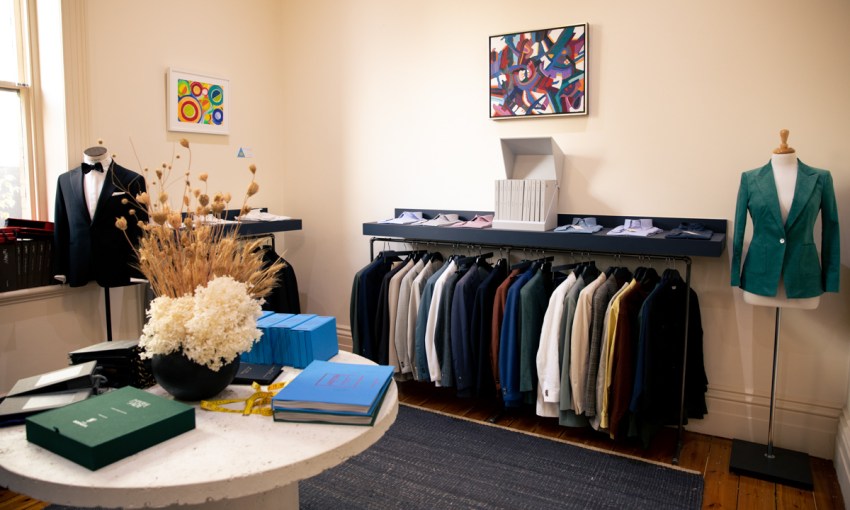Menswear sometimes feels like an afterthought in the local fashion scene, but Adelaide designers and retailers are convinced it’s about to have its moment.
Adelaide menswear’s slow rise from sartorial slumber
Looking for menswear in Adelaide is no easy task, especially if you want to apply the same hyperlocal focus to your sartorial consumption as we’ve become accustomed to in most other aspects of our lives. Supporting and building a wardrobe out of local labels is seriously difficult.
Up-and-coming local designer Jason van Hamburg, who’s clothing label is self-titled, agrees with this bleak assessment of Adelaide’s menswear fashion scene – though they say they see glimmers of hope.
“There are a lot of really beautiful things happening here in Adelaide, like Sune Nuuen and Nowa the Label, that I find really inspiring,” they say.
“But at the same time, I think there’s so much opportunity [for more].”
According to Jason, the menswear and wider fashion scene in Adelaide is being held back by outdated gendered assumptions and stereotypes, as well as the strict divide between mens- and womenswear.
“Breaking down that barrier of mens- and womenswear is only healthy for everybody,” Jason says.
“I think many have this idea of accommodating to most bodies, and that can be done with removing unnecessary details [with gendered connotations] – like how a shirt’s buttoned or if a shirt’s silhouette is flowy.
“Having such a strong binary between mens- and womenswear can also be harmful. There’s no harm in calling it a shirt or a top or pants and just removing the gendered labelling of clothing. They’re just garments.”
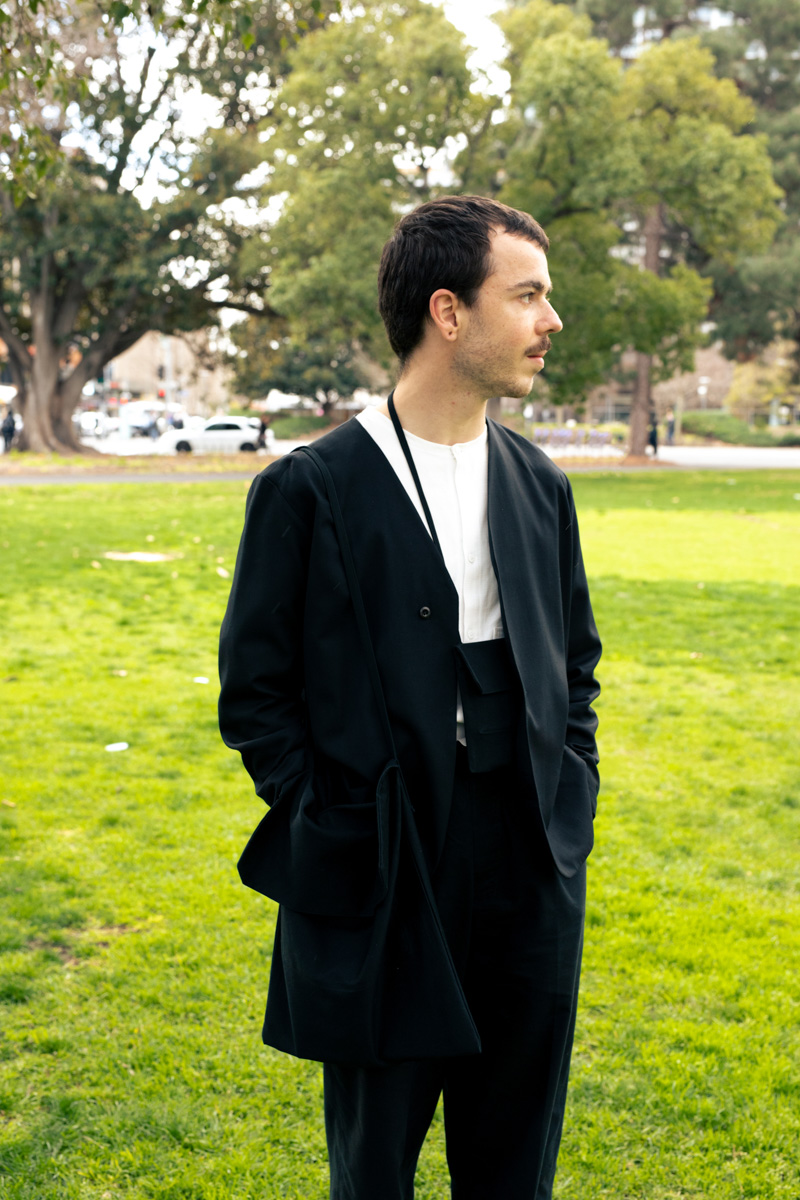
Jason van Hamburg
This is a notion that guides Jason’s label, as well as their personal shopping habits. If other Adelaide clothing makers and consumers afforded themselves this same liberal view, Jason says our clothing scene will reap the rewards.
“The only thing I can think of [to better the menswear scene in Adelaide] is continuing to break down these assumptions that if men care about what they wear then they should be stigmatised,” they say.
“I think allowing more freedom for everyone to just do what they feel comfortable with is something that I’m really passionate about.
“I only hope to see more and more people making clothing in Adelaide. I think it’s so special.”
Will Swale, co-founder and owner of rapidly growing ortc Clothing Co, also thinks there aren’t enough men’s labels in Adelaide. But like Jason, Will is noticing increasingly positive trends from male shoppers.
“We’ve got some really great, loyal male customers. I think men are creatures of habit in a sense that we know what we want and what we like. If men know a t-shirt fits them perfectly, they’ll go and buy the same one again and again,’ Will says (as CityMag nods, thinking of our half-dozen Uniqlo U tees).
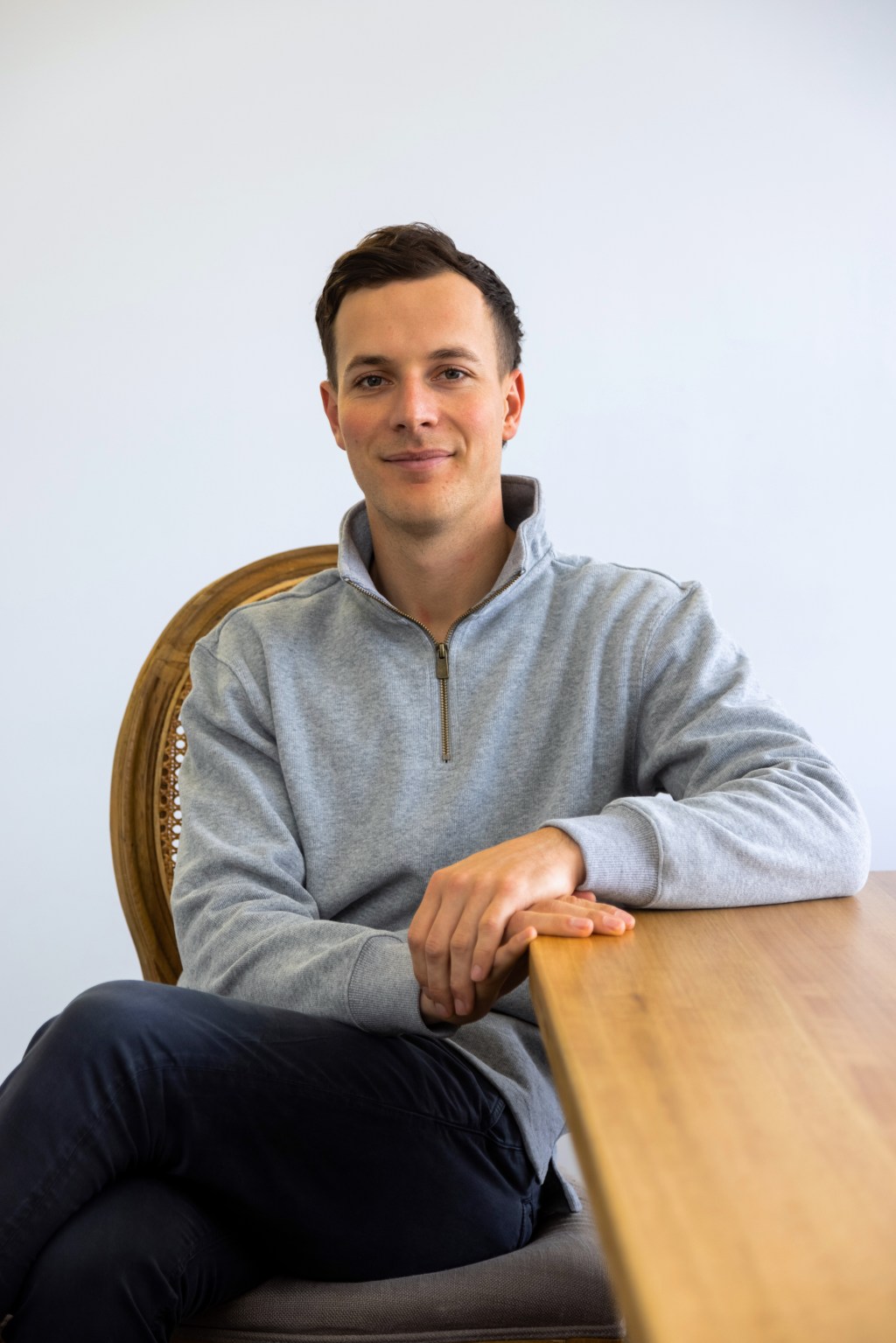
Will Swale. This picture: Supplied
As someone who’s established his own label in Adelaide, made up of predominantly menswear, and developed a core following, Will is confident men in Adelaide will be receptive to new brands entering the market – in turn diversifying the scene.
“Adelaideans love local stories. Once they get behind a local product, people love to show it a lot of support,” he says.
“We have great aspirations in the next 12 to 18 months to do things like parties and inject more energy and life into the brand. We’d love to be doing collaborations and host events, because these kinds of things really help create and expand the scene.”
Ortc is set to open a flagship store on The Parade in early October, a destination shopping experience for the brand’s consumers. The store will also be exclusive stockists of international label Oliver Cabell.
Despite Will’s positive outlook for both his brand and the wider menswear scene in Adelaide, he says the return of a local fashion week will help “really celebrate South Australian brands. Because right now, there isn’t enough of this – especially in the menswear scene”.
A new local fashion festival, ADL Fashion Week, happening in early October, has recently been announced.
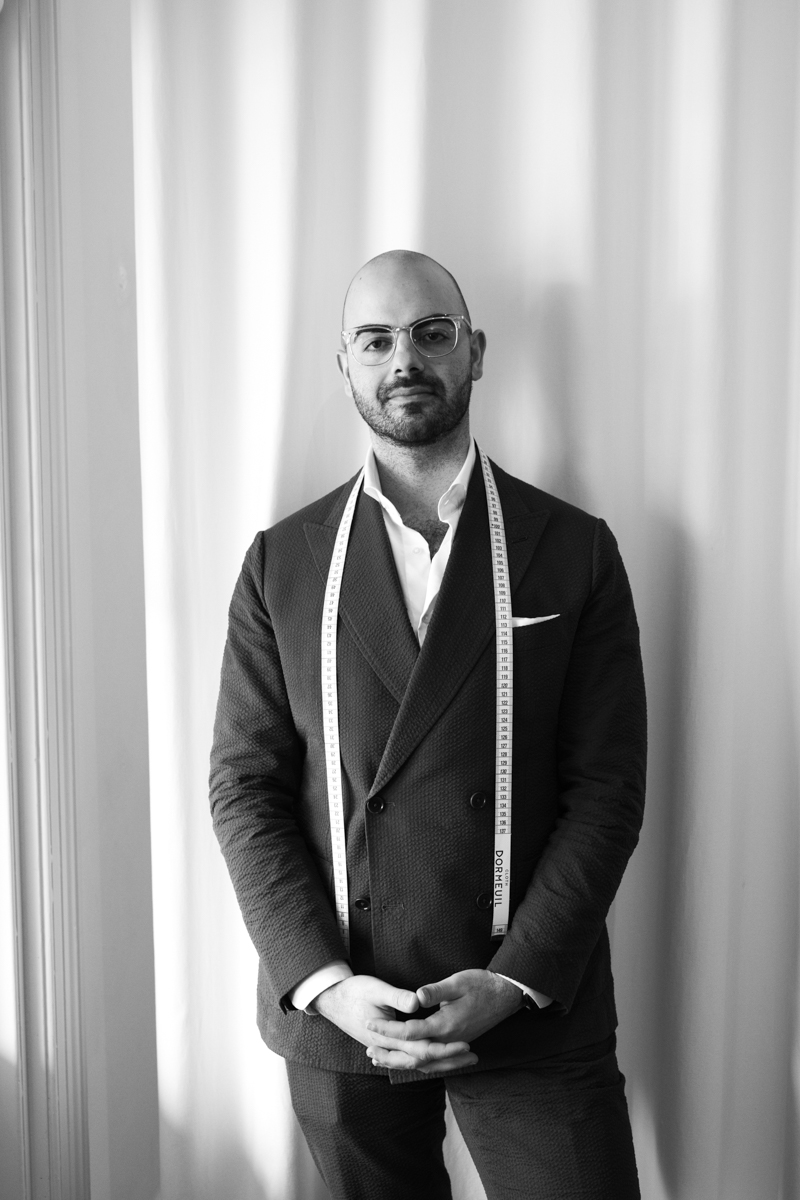
Steven Athinodorou
Steven Athinodorou, showroom manager at Oscar Hunt on The Parade, agrees with Jason, saying Adelaide conservatism is a barrier to creating the sort of fashion scenes present in Melbourne or Sydney.
“The conservative nature of Adelaide [is what’s holding us back]. If something’s new, we don’t tend to jump straight into it, like they do a bit more in the eastern states,” he says.
“Here, there’re a lot more questions people ask before they try something new. I think we’re getting better, but there’s still a lot of room for improvement.”
Despite this market hesitancy, Steven is optimistic about the long-term prospects of Adelaide’s men’s fashion scene.
“I reckon it will thrive in the next five to 10 years. I think COVID has played a part in this, too. From a fashion point of view, the pandemic’s given people time to sit back and think about how they work and what they can wear to work,” Steven says.
“Since COVID, I reckon I’ve seen four or five menswear shops open along Rundle Street that I haven’t seen in Adelaide before that are quite edgy and different and quite fashion-forward – like Subtype. I don’t think we’ll quite catch up [to Melbourne and Sydney] in the next decade, but we’ll definitely be on the right track to no longer being the fashion deficit of Australia.”
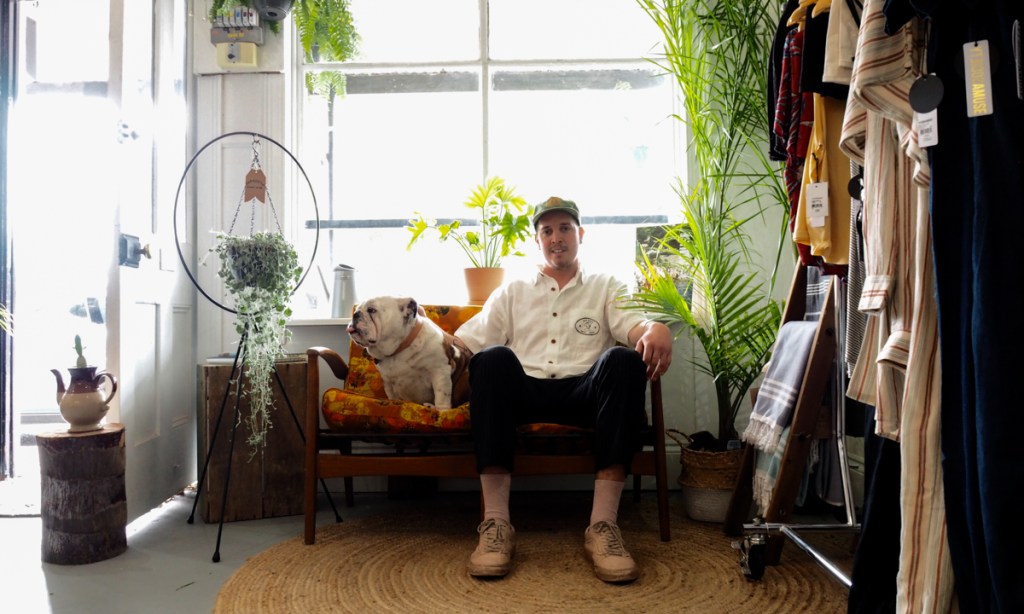
Ben Hewett (right). This picture: Ellie Crozier
Looking at the success of other creative and community-minded industries in Adelaide – like our blossoming festival and hospitality scenes – is a source of hope for Ben Hewett, founder and owner of popular Port Elliot-based surf brand Yeo Haus.
“Just look at the bar scene and what it was like five, 10 years ago compared to now. It’s come out of nowhere and I think clothing and men’s clothing can do the same,” Ben says.
Having run Yeo Haus for nearly eight years, Ben’s long dealt with the conservative nature of our menswear scene – though he, too, sees the light ahead.
“I’ve been going for seven to eight years now and it’s been a very slow road. Nothing ever moves too fast in Adelaide – a city known for its conservative outlook,” Ben says.
“But recently, I’ve seen this new generation of kids coming through, like Reuben [Lane] and Steph [Dimasi] from Room on Fire Vintage, and I do feel like there is a new spark of energy in Adelaide and the men’s fashion scene.”
While many of the people CityMag spoke to for this piece were quick to state how much the fashion industry in Adelaide would benefit from state government or local council funding, Ben is more focussed on factors within his control.
“I sacrificed seven years of weekends to get my brand to where it is now, so, as much as you can ask for a handout, you’ve got to put in the hard yards as well. You’ve got to take risks and make it work, and if you’ve got the right mentality, you will make it work,” he says.
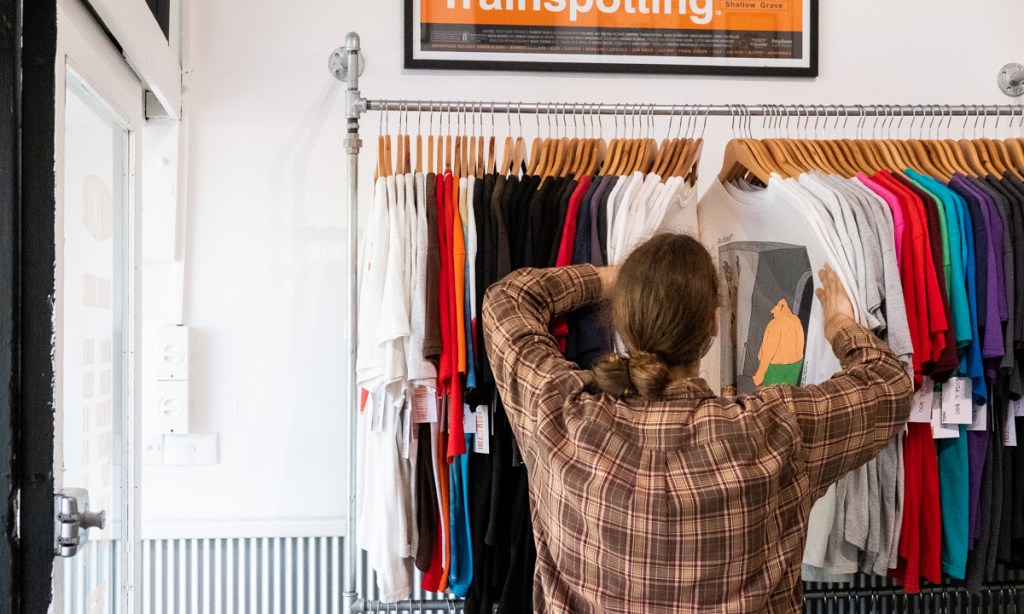
Room on Fire. This picture: Johnny von Einem
Though he says government-funded initiatives like Renew Adelaide have allowed budding brands get a foot in the door.
“Broadly, I definitely think the scene is building,” he says.
“There are incentives like Renew Adelaide giving a platform to up-and-coming brands to try out their wares in a space without daunting things like overheads and landlords.”
Vintage retailer Room on Fire was originally an online-only store, but recently opened in bricks-and-mortar on Hindmarsh Square. While disappointed that Adelaide still lacks a premium, independent boutique similar to Incu in Melbourne, co-owners Reuben and Steph are pleased by the arrival of large, mainstream brands and stores in Adelaide.
“The menswear scene is growing, but it’s slow. I think it has progressed a little in the last five years, with additions like Subtype and Nudie, and we’ve got the giants like JD Sports and Glue Store opening soon, too,” Steph says.
“But there’s definitely a gap in the middle, being premium menswear, that we just don’t have.”
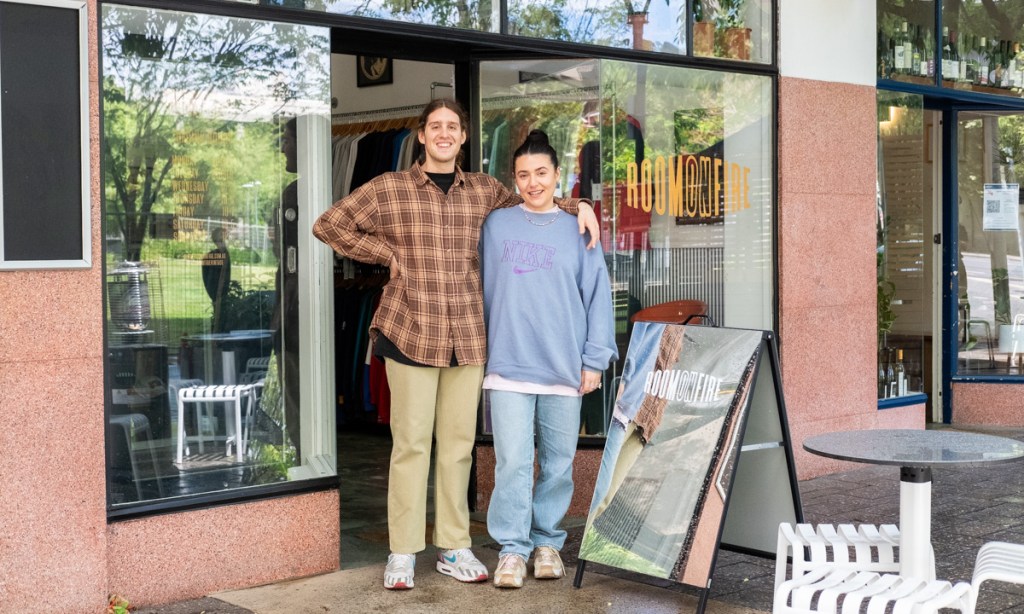
Reuben Lane and Steph Dimasi. This picture: Johnny von Einem
To Reuben and Steph, this is not only a signal of a bright future for Adelaide menswear, but also for in-person shopping – which, in their experience, aligns with male shopping preferences.
“We find men actually enjoy the personal experience where they can come and try something on, find what fits them and buy it with no fuss,” Reuben says.
“Adelaide on the whole is definitely progressing. People from interstate definitely feel more inclined to come here, and the hospitality scene is absolutely leading the way. I reckon the retail aspect of fashion will naturally follow on from the buzz the hospitality scene has given the city.”
There are still hurdles. A recent survey commissioned by the City of Adelaide showed a majority of large businesses in the CBD are still offering work-from-home arrangements, some of which are baked into employment contracts, which hurts burgeoning bricks-and-mortar businesses.
“There’s not so much foot traffic,” Steph says.
“If we could just get more people back into the city, that would be a huge help for a lot of the smaller fashion businesses. I think a little help from the government would get people back in the city and shopping again – and losing Adelaide Fashion Festival and Vogue Festival definitely hasn’t helped.”
While there is still reason for Adelaide-based menswear enthusiasts to visit the boutiques of the eastern seaboard on occasion, amongst local business owners in the scene, there is a sense that something is about to happen.



